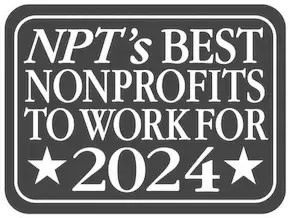
Since Benjamin Franklin launched the first cooperative business in the United States, co-ops have been formed by their members to respond to the needs of their communities. A co-op is a business that is owned and controlled by its members, with agriculture, credit unions, and electric companies among the most common sectors in the U.S.
There are currently more than 29,000 existing co-ops in the U.S., but there is also a renewed interest in this model thanks to the “Buy Local” and “Shared Economy” movements.
We caught up with Alison Powers, Program Officer of Cooperative Development at Capital Impact Partners, to discuss the history of co-ops and what direction they are headed.
Alison Powers, Program Officer of Cooperative Development at Capital Impact Partners
CI: WHY ARE CO-OPS IMPORTANT?
AP: Co-ops are a big economic force in the U.S., more than 2 million jobs and earning over $600 billion in revenue, yet they’re still relatively unknown. A co-op sells goods and services, and the financial gains go back to its owner-members through discounts, lower costs, or patronage refunds. While a few cooperatives provide social services, most are businesses selling products to consumers and other businesses. Companies like Land O’Lakes, REI, and Ocean Spray are co-ops, but most people probably don’t realize it. In fact, one out of every three Americans is a member of a co-op.
CI: WHAT MOTIVATES PEOPLE TO FORM A CO-OP?
AP: Co-ops are created to fill needs in a community. Historically, in this country, co-ops have been agricultural or large rural electric co-ops. By joining together, members gain access to products, services, or markets not otherwise available to them. Agriculture can provide a good example here: 100 farmers can command a lot more bargaining and purchasing power when they work together. We’re also seeing a renewed interest in communities bringing in retail-based cooperatives to provide goods and services not being provided by other businesses.
CI: WHAT HAS BEEN CAPITAL IMPACT PARTNERS’ HISTORY WORKING WITH CO-OPS?
AP: It might surprise some people to know that Capital Impact actually has its roots in the cooperative movement. In 1978 Congress passed the National Consumer Cooperative Bank Act to encourage the development of new and existing cooperatives. Among the many outcomes of this legislation was the creation of the “Office of Self-Help Development and Technical Assistance.” This program focused on developing new types of services that could be provided through cooperative organizations contributing to the economic development of low- and moderate-income communities. Over the next three decades, that group grew and evolved into the stand-alone nonprofit Community Development Financial Institution that most know today as Capital Impact Partners.
What many also don’t realize is that Terry Simonette, our CEO, was there in the very beginning. I think that speaks volumes about our commitment and dedication to the co-op movement. Capital Impact is passionate about investing in cooperatives that build strong, vibrant and sustainable communities. So, even as we have branched out into a variety of areas, co-ops still fit perfectly within our larger mission, which is to create healthy, strong and inclusive communities for people of all ages and income levels.
Co-ops are a great vehicle in creating local jobs and local ownership of critical goods and services for low-income communities as part of this work.
Capital Impact is passionate about investing in cooperatives that build strong, vibrant and sustainable communities.
Capital Impact staff show their support for co-ops in a variety of ways, including running in the annual co-op 5K.
CI: ARE CO-OPS MAKING A COMEBACK?
AP: Yes! Co-op development tends to be cyclical in nature, related to economic cycles. The last peak was in 1970s, and there is another peak happening now as a response to the recession. We’re seeing a lot of new startups that are food and worker co-ops, and there is a lot of momentum and interest generally in the co-op ownership model. This fits with the trend of the “sharing” economy or the “think local” movement. Co-ops are social enterprises based on democratic and local ownership. The fact that they’re being rediscovered by a new generation of entrepreneurs is exciting and Capital Impact’s strategy will be to support the development of cooperatives across the country.
CI: WHAT HAS CHANGED ABOUT CO-OPS OVER THE LAST DECADE?
AP: The past 10 years have been interesting. We’ve seen a shift in cultural values that favors co-ops, especially in low-income communities. This parallels the work we do at Capital Impact. When we support co-ops, we empower community members to solve local problems.
We’ve also seen a lot of interest in immigrant urban communities. People who had previously been excluded from mainstream workforce markets are now able to create worker co-ops to provide services such as bakeries, housekeeping, construction, and home health care to their communities. This is a way to get access to jobs—jobs that the workers control.
One good example of a worker co-op is Prospera, which operates in the San Francisco Bay area. They incubate worker co-ops for Latina women who are house cleaners. This industry is notorious for exploiting workers and Prospera gives the control back to the women by providing them with the tools needed to create and run a business they own and control. The result is an increase in wages, job security, and flexible work schedules. Their lives are greatly improved by this.
After graduating from a hands-on training program, these women are ready to become founding worker-owners at a Prospera-supported co-op that will make and sell paletas–traditional Mexican popsicles (as seen in the banner image).
CI: WHAT WILL CAPITAL IMPACT PARTNERS’ ROLE WITH CO-OPS LOOK LIKE OVER THE NEXT YEAR?
AP: I’m really excited about the coming year and our work with co-ops across the food, worker, and housing sectors. As part of our continued effort to support the movement, we are identifying strategic partners and providing them with practical assistance, resources, and grant funding. This includes the debut of our $40,000 Co-op Innovation Award that will be used to support leading organizations in this sector.
We are also increasing our cooperative lending with the launch of the National Co-op Grocers (NCG) Loan Fund*. We have a long track record of lending to natural food co-ops, and this fund will build on that by financing the expansion and growth of existing co-ops that sell healthy foods in their areas.
*As of December 2016, this fund was closed.
Powers & Photo: © 2015 Capital Impact Partners
Banner & Graduation Photo: © 2015 Prospera









